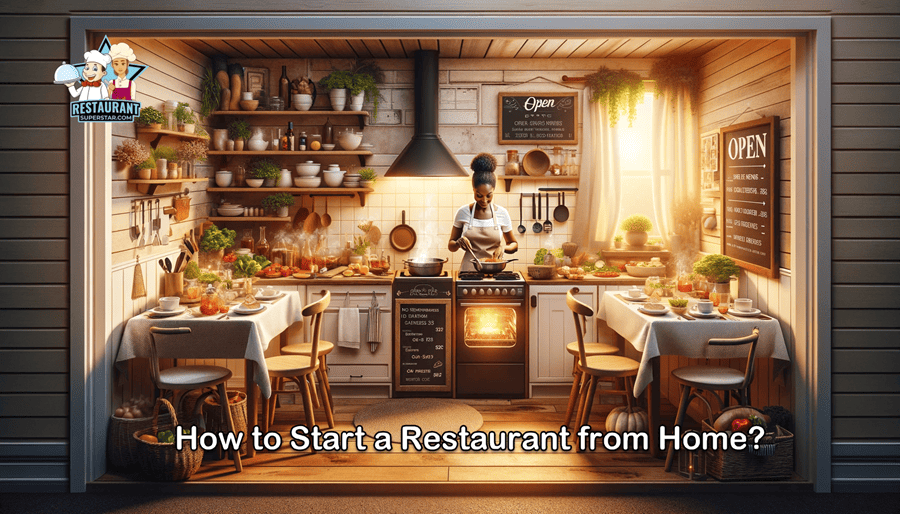10+ Important Red Flags When Buying A Restaurant
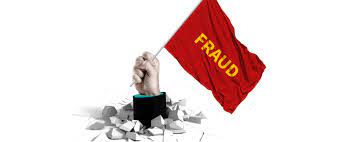
10+ Important Red Flags When Buying A Restaurant
If you’re an aspiring restaurant owner looking for information on Red Flags when buying a restaurant, you’ve come to the correct spot.
This article will go into great depth on that question.
So, what are the Red Flags to look for when buying a restaurant?
Let’s take a look.
What are the Important Red Flags When Buying a Restaurant?
What are the Important Red Flags When Buying a Restaurant? These Red Flags are as follows: Existing Liabilities, Liquor License Transfer Issues, Leasing equipment, Putting off maintenance by the restaurant seller, payroll reserves, and a variety of other issues will be discussed in this article.
So, you’re thinking about diving into the restaurant biz.
Trust me, there’s nothing quite like the thrill of owning a place where folks come together for good grub and great vibes.
But here’s the deal – not every opportunity is as golden as our sunsets here in the Sunshine State.
Some are riddled with little red flags, waving and warning you that all may not be as it seems.
Navigating the restaurant buying game can be trickier than predicting our Florida weather.
One moment, it’s all sun and smiles, and the next, you’re in the midst of a stormy mess.
That’s why spotting those important red flags when buying a restaurant is crucial.
But fret not!
Whether you’re a seasoned restaurateur or a fresh-faced enthusiast, I got your back.
In this guide, we’ll talk business (pun intended 😉) and discuss the details of those warning signs.
And, to keep y’all on the safe side, I’ve listed steps to take to ensure you don’t make a rookie mistake.
Ready to serve up some wisdom?
Let’s get cookin’.
1 – Hire a Restaurant Consultant
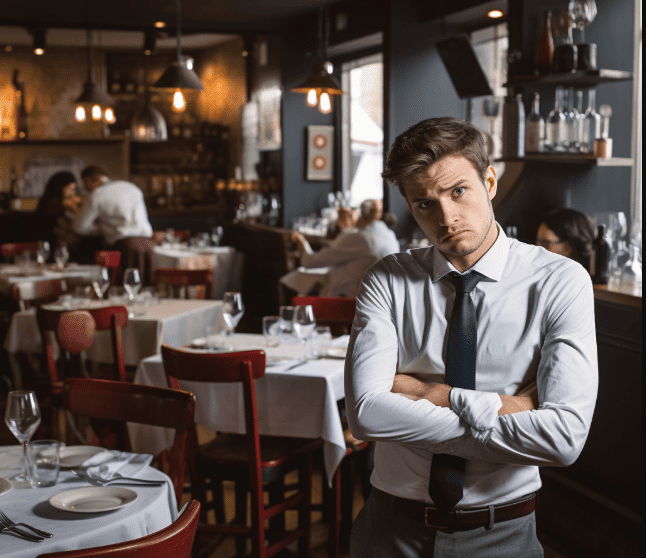
The first step should be to hire a restaurant consultant; your consultant will review the financial statements and point out anything that seems strange. The financial statements should show how well the business is doing financially.
Knowing what you’re getting into when you buy a restaurant is essential. Here are the red flags to look out for when buying a restaurant:
2 – Existing Issues and Problems
When you buy a restaurant, the person selling it must tell you about current debts. Restaurants can get in trouble for things like breaking health codes, hiring people who don’t have the proper papers, paying them in cash, sexual harassment, etc. All these things could be trouble for a buyer who isn’t careful.
Buyers should take the time to ensure they don’t get stuck with the seller’s debts by only buying the restaurant’s assets.
By buying only the assets (lease, equipment, name, inventory, etc.) instead of the whole business (the corporation), buyers avoid taking on the seller’s liabilities, also called successor liability.
The safest way to avoid “successor liability,” or taking on the seller’s debts, is to:
Instead of buying shares, you can buy the restaurant by its assets.
You can start a new business entity like an LLC, corporation, or partnership to get the restaurant’s assets.
Use a business escrow to ensure all liens and taxes have been paid off for your restaurant.
Demand that the person selling the restaurant gives you written, signed information about how they have followed all laws and codes that apply to the business.
Ensure that the “Representations and Warranties” section of the purchase agreement includes a clear statement from the seller that they follow all relevant laws.
Hire an experienced restaurant broker to ensure the deal goes smoothly and without problems.
By doing these things, you can protect your purchase.
Of course, suppose any of these problems come up. In that case, the safest thing to do is to talk to a business lawyer or a real estate lawyer to ensure you can avoid or minimize legal risks.
3 – Refusal To Sign a Non-Compete.
Even though this doesn’t have to make or break the deal, it’s something to be wary of if the owner won’t sign a non-compete agreement. This contract says employees can’t open a restaurant that competes with the one they want to buy. This is especially true if the owner is also the chef because he or she might be able to take the recipes and menu ideas with them, forcing you to start over and make your own.
4 – What did the Restaurant Sellers’ payroll look like?
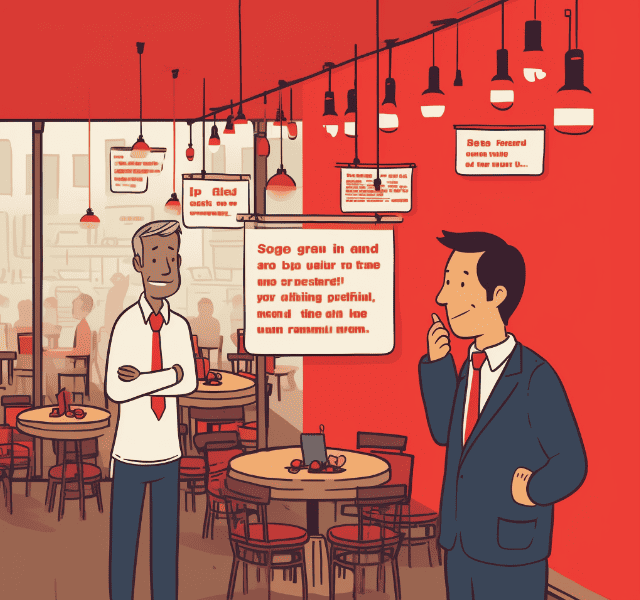
You might find out from the seller that they recently laid off workers but haven’t changed their payroll reserves to reflect that.
You may have heard of payroll reserves even if you’re not an accountant. But if you haven’t, here’s a quick overview:
Payroll reserves are the amount your company needs to set aside for future employee costs.
This means paying the IRS and employees’ 401(k) contributions. You could also call them “payroll liabilities,” but that term is usually used in other fields.
Keeping a good balance in your payroll account ensures that your business has enough money to pay its bills when they are due without going bankrupt or getting into debt.
So it’s essential not only for your business’s health but also for its survival.
5 – Liquor License Transfer Issues
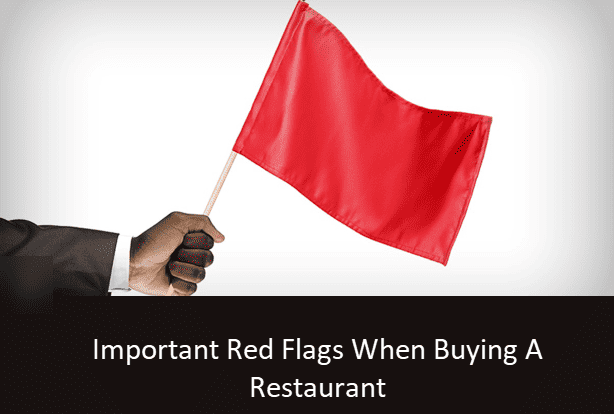
Seller’s Liquor License: You can’t sell a liquor license in New York, which you can do in New Jersey. People who want to buy a business often tell me the seller will give them their liquor license, but that is untrue.
All requests for a liquor license must be approved by the State Liquor Authority, which looks at the building, how it is used and run, the applicant’s criminal and financial history, and a lot more.
In other words, the State Liquor Authority doesn’t allow rapid and easy transfers of liquor licenses and is quite cautious when issuing them.
An application for a transfer is the same as any other application, and the fees and the hoops you must jump through are the same.
Liquor license transfers take a long time because the state has to ensure that the person buying the license is not a member of organized crime.
This is one reason why the buyer must have their fingerprints taken.
People convicted of a crime cannot get the liquor license transfer. To get around this, buyers will ask a family member or partner who has never been convicted of a crime to apply for the license on their behalf.
On average, it takes about two months to transfer a liquor license.
6 – Leasing equipment and putting off maintenance

Restaurant equipment can be expensive to replace. During due diligence, you’ll want to look at the restaurant’s equipment to ensure it’s in good shape.
1) Make sure the seller is the owner of the restaurant equipment;
2) Make sure the restaurant’s equipment is In good condition.
The seller should tell you about any leases or liens on the equipment. But when a restaurant rents equipment, the equipment owner usually puts a UCC lien on the business.
A business escrow officer will search UCC liens to ensure no liens. Bulk Sales law also says there has to be a notice in a newspaper for a certain amount of time so that creditors can go after their lien before the sale ends.
Some equipment leases stipulate that the lien must be satisfied upon the sale of the restaurant.
This provision is known as a “due on sale” clause.
Suppose they do not get money from the seller (which they should unless the contract specifies otherwise), and there is no bulk sale notification.
In that case, they may pursue payment from the buyer.
Let’s say you need to put the restaurant’s kitchen equipment on the books soon after you buy it.
In that case, the purchase price should be changed to account for the cost of replacing the equipment or keeping it in good shape.
Before you let go of the equipment and property contingency, you must do your due diligence and have a professional check out the equipment.
After you finish the financial analysis, you must also schedule the health inspection to make sure that the equipment is up to code and that any new, stricter regulations are brought to your attention and, if possible, grandfathered in or that you are made aware of any extra costs that may come with future upgrades.
7 – Lack of Sales Tax Payment.
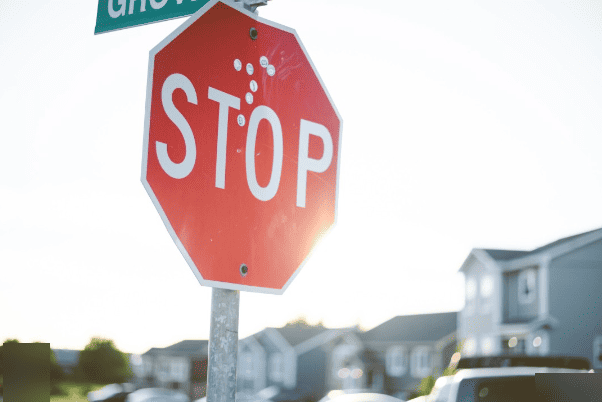
A common problem that slows the escrow process is when the state tax authorities say that back taxes are due and must be paid before they approve the sale of the business.
Restaurants have a lot of money that doesn’t get reported. By not reporting all of their sales, many restaurants try to pay the state the least sales tax. When a seller attempts to sell the company, the transaction may result in an audit of the restaurant’s sales.
The state’s investigative powers will ask for financial records and talk to the seller to determine if back taxes are due because sales were not reported.
To make sure you don’t have to deal with this problem after the owner has left, make sure to:
1) If you are not good with numbers, hire an accountant to help you do your financial due diligence. Most restaurant owners are creative people who might not pay as much attention to the money side of the business they run or buy.
No matter what, if you are too busy to determine if the seller is paying their sales tax to the state, you can hire an accountant to crunch the numbers and ensure the sales tax was paid.
2) Make sure that a business escrow is used to handle your sale. The escrow officer will ask the state to clear up any back taxes so that the title transfer goes smoothly and you don’t have to pay the seller’s back taxes.
8 – Cash flow is sometimes a worry.
Cash flow is how much money comes into a business and how much it leaves. It tells you if you have enough money to pay your bills, which is essential because a negative cash flow means you’re losing money. Even if a restaurant isn’t making money, it should at least make enough to cover its costs.
9 – Look at how sales change from month to month.
When figuring out how well a restaurant is doing financially, the sales trend is one of the most important things to consider.
You want to see steady growth over time, maybe with changes from season to season.
If sales have been going down sharply for months, or if the owner can’t or won’t explain why, this could mean something is wrong and needs to be fixed.
Conclusion
As you can see, there are a lot of warning signs to look out for if you want to buy a restaurant. We know it’s hard to know everything about every business.
There are a lot of warning signs to look out for when buying a restaurant, but we hope this article will help you figure out what to avoid. With what you’ve learned here, go out and don’t be afraid to explore.
Frequently Asked Questions. (FAQs)
What Do You Need on the First Day That You Open Your Restaurant?
During the first day, the most important thing is ensuring the customers have a good time. They must like the food, service, decor, and atmosphere. Even though restaurant owners can’t change what customers want, they should always be professional.
How do you tell if a restaurant is a front?
I’ll give seven signs to detect whether a restaurant is a front for illegal business:
- They’re Out of Everything
- Forever Grand Opening.
- Baked goods in a box.
- You Are the Only Client.
- Pagers.
- Amateur Hour is always on.
- Only cash is accepted.
How can you know whether a restaurant is a hit or a flop?
Restaurants are easy to watch because you know that they should be busy during meals and on weekends. If you can’t sit there and count for a week or two, park your car near the place and use a time-lapse camera to observe you.
How much should I pay for a restaurant?
Recent data from the industry show that restaurants sell for a median of $150,000.
But the prices of restaurants vary a lot depending on where they are and what kind they are, and the overall costs of starting up will make the prices higher.
(As of 2020, the total cost of starting a business ranges from $250,000 to $500,000, depending on many factors.)
I believe you will find something cheaper in your area, but it’s always best to assume a higher price based on location, changes in real estate prices, and existing assets at the time of purchase.
The investors and owners of a restaurant will try to sell it for 25–40% of its operating income for the year.
Jeff Smith is a Restaurant Consultant with over 20 years of hospitality experience, from server to owner to general manager. He focuses on Restaurant POS technology as well as restaurant marketing. Check out our world famous restaurant resources page for a comprehensive offering of hand picked resources and tools to help your business. You can also check out some of our other restaurant business articles.


